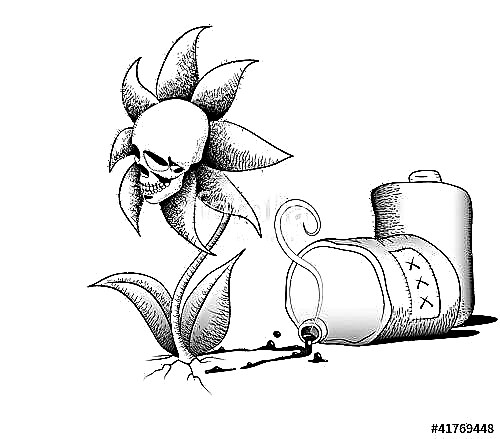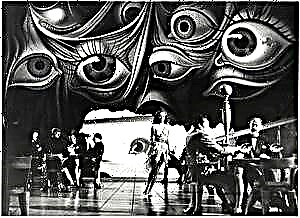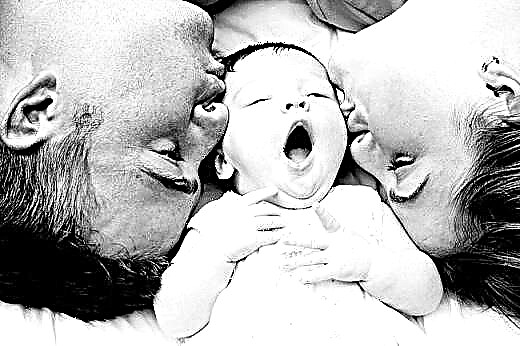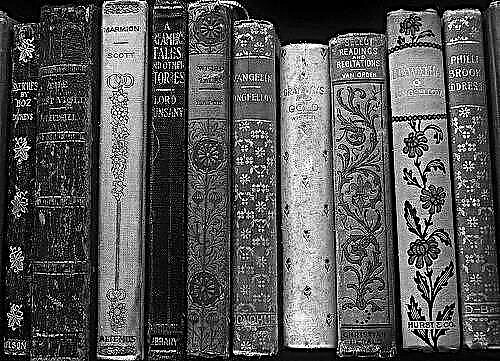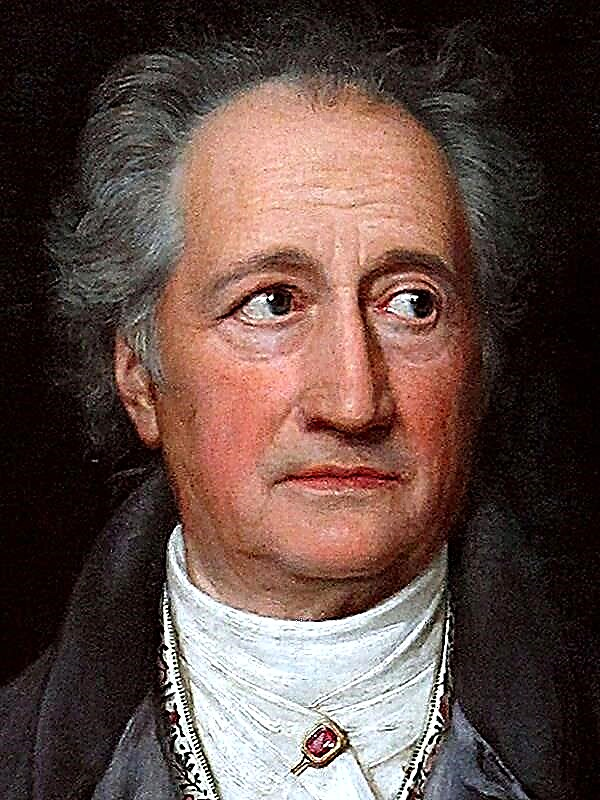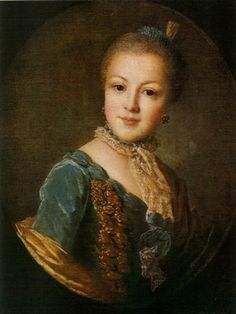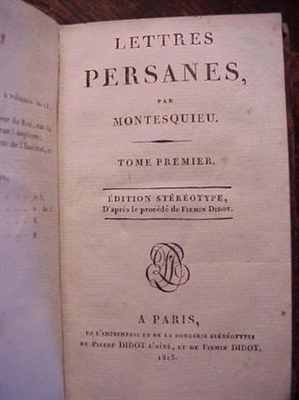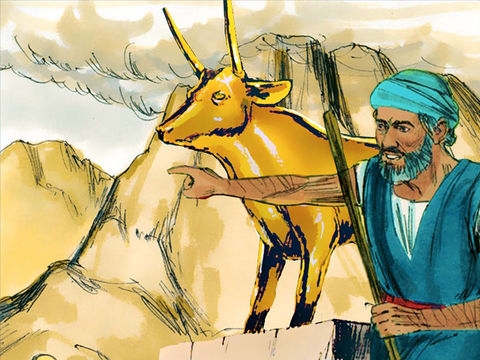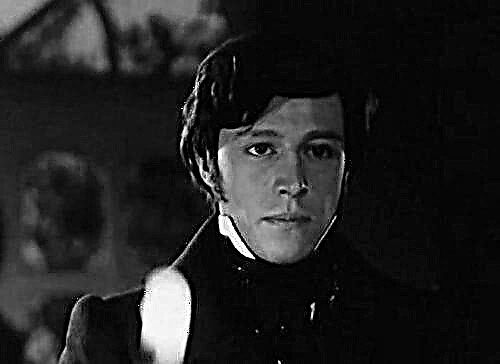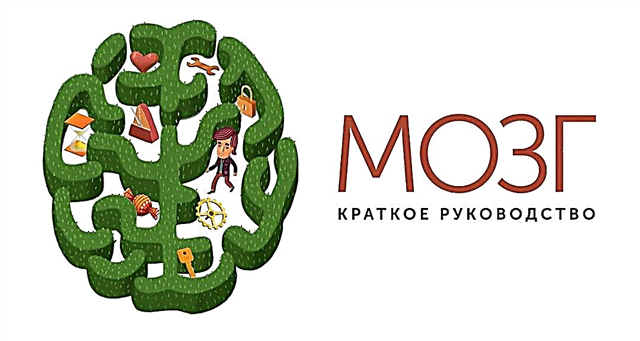On July 20, 1714, the most beautiful bridge in Peru collapsed, dropping five travelers into the abyss. The catastrophe struck the Peruvians extraordinarily: the bridge of King Louis Saint seemed somehow immutable, existing forever. But although everyone was shocked, only one person, Brother Uniper, the red-headed Franciscan monk who accidentally witnessed the catastrophe, saw a certain idea in this tragedy. Why exactly these five? He wondered. Either our life is accidental and then our death is accidental, or both in life and in our death the Plan is laid. And brother Uniper made the decision: to penetrate into the secret of the lives of these five and unravel the causes of their death.
The only passion of one of the victims - the Marquise de Montemayor (fictional face) - was her daughter, Don Clara, whom the Marquise loved before self-forgetfulness. But the daughter did not inherit her mother’s ardor: she was cold and intelligent, the obsessive adoration of the marquise weary of her. Of all the applicants for her hand, Don Clara chose the one with whom she was to leave for Spain. Left alone, the marquise became more and more self-contained, conducting endless dialogues with her adored daughter. The only joy for her was the letters she sent every month, with another opportunity, to Spain. To be interesting for her daughter, the marquise trained her eye in observation and talked with the most brilliant interlocutors, honing her style. The daughter only glimpsed the letters of her mother briefly, and the preservation of them, which later became monuments of Spanish literature of that time and textbook texts for schoolchildren, humanity owes to the marquise's son-in-law.
Sometimes the marquise had the idea that she was sinful and that her great love was marred by tyranny - because she loves her daughter not for her, but for herself. But the temptation always won: she wanted her daughter to belong only to her, wanted to hear her say: "You are the best of mothers." Immersed entirely in herself, the marquise did not even notice how once in the theater, with a large crowd of people, the popular actress Perikola sang couplets in which she openly mocked her. Having written the next letter to her daughter, the marquise was forgotten for several days in alcohol intoxication.
A constant witness to these difficult hours of the marquise was her young companion Pepita, another victim of the tragedy on the bridge. This pure soul orphan, brought up at the monastery, the abbess mother Maria del Pilar sent to serve the marquise, so that she comprehended the laws of high society. The abbess brought up this girl especially carefully, preparing herself a replacement. Mother Mary herself gave herself entirely to the service of others and, seeing in the girl an extraordinary will and strength of character, she was glad that there was someone to convey her worldly and spiritual experience. But even brought up in impeccable subordination, Pepita found it difficult to live in the palace of the Marquise, who, absorbed entirely in thoughts of her daughter, did not see either the greed of the servants or their theft. The Marquis almost paid no attention to Pepita.
The news that the daughter will soon become a mother plunged the Marquise in incredible excitement. She makes a pilgrimage to one of the Christian shrines in Peru, taking Pepita with her. There, praying earnestly in the church, the marquise returns to the inn, where she accidentally reads a letter written by Pepita to the abbess. The girl tells in it how difficult it is for her in the palace, how she wants to return to the monastery at least for a day and be with her dear mentor.
The simplicity of the girl’s thoughts and feelings causes confusion in the soul of the marquise. She suddenly discovered that she had never been with her daughter herself - she always wanted to like her. The marquise immediately sits down to write her first real letter to her daughter, not thinking about making an impression, and not caring about the sophistication of the speech, is the first clumsy experience of courage. And then, rising from the table, he says: “Let me live now. Let me start all over again. ” When they moved back, they already suffered a certain misfortune.
The third dead, Esteban, was a pupil of the same Maria del Pilar; he and his twin brother Manuel were thrown to the gates of the monastery in early infancy. When the brothers grew up, they settled in the city, however, as needed, they performed various works in the monastery. In addition, they mastered the craft of scribes. The brothers practically did not part, each knew the thoughts and desires of the other. The symbol of their complete identity was the language they invented, in which they spoke to each other.
The first shadow that overshadowed their union was Manuel's love for a woman. The brothers often rewrote roles for theater actors, and once Perikola turned to Manuel with a request to write a letter under her dictation. It turned out to be amorous, and subsequently Perikola repeatedly resorted to the services of a young man, and the recipients, as a rule, were different. Although there was nothing to think about reciprocity, Manuel fell in love with the actress without a memory. However, after seeing how Esteban suffers, believing that they have found a replacement, Manuel decides to end all relations with the actress and try to erase her from memory.
After some time, Manuel injures his leg. A mediocre healer does not notice the onset of blood poisoning, and after suffering for several days, the young man dies. Before dying in a fever, he talks a lot about his love for Perikola and curses Esteban for standing between him and his love.
After the death of his brother, Esteban impersonates Manuel - he does not reveal the truth to anyone, even the closest person in the world - the Mother Superior. Mother Maria del Pilar prays to God for a long time that he will send peace to the soul of a young man who, after a funeral, wanders around the city with crazy eyes burning like coals. Finally, it dawns on her to turn to Captain Alvarado, a noble traveler, to whom the brothers have always had deep respect.
Esteban agrees to go sailing on one condition: the captain must pay him all his salaries in advance so that he can buy the present from his abbess both from himself and from his deceased brother. The captain agrees and they are sent to Lima. At the bridge of St. Louis, the captain goes down to look after the transport of goods, and Esteban goes along the pedestrian bridge and falls with him into the abyss.
The deceased boy, don Jaime, was the son of actress Perikola, who she had survived from her relationship with the Viceroy of Peru, and his uncle Pio who accompanied him was her old friend, almost his father. Uncle Pio - everyone called him that - came from a good Castilian family, but ran away from home early because he had the character of an adventurer. During his life, he changed dozens of professions, always pursuing, however, three goals - to remain independent in any situation, to be near beautiful women (Uncle Pio himself was fooled by himself) and to be closer to people of art.
Uncle Pio literally picked up Perikolu on the street, where she sang songs in the company of stray actors. Then in Uncle Pio’s head the idea arose for becoming a vocal girl Pygmalion. He fumbled with her like a real father: taught good manners, diction; read books with her, taken to the theater. Perikola (then she was still called Camila) wholeheartedly attached to her mentor and simply idolized him.
Over time, the long-armed, legged teenager turned into an extraordinary beauty, and this shocked Uncle Pio, as shocked him and her success as an actress. He felt the accuracy and grandeur of Perikola’s game and, studying for a long time, analyzed the shades of its performance, sometimes even allowing himself criticism. And Perikola listened with attention, for, like him, she strove for perfection.
The actress had many fans and novels, and from the viceroy, with whom she had a long relationship, she survived three children. To Uncle Pio’s horror, Perikola’s interest in the theater is beginning to fade away. She suddenly wanted to become a respectable lady, she even achieved the legitimization of her children. Chaim inherited a spasm from his father - Perikola paid attention to this son more than the others.
Suddenly, news spread across Lima: Pericola is sick with smallpox. The former actress recovered, but the damage to her beauty was irreparable. Despite the fact that Perikola secluded herself and did not accept anyone, Uncle Pio cunningly penetrates her, trying to convince him that his feelings are in no way connected with her beauty - he loves her personality, and therefore changes in her appearance do not excite him. Uncle Pio only asks for mercy - to take Don Haim for a year: the boy is completely abandoned, and he has good inclinations, you need to study Latin and music with him. Perikola hardly lets go of her son, and soon receives terrible news: when crossing the bridge, both of the people closest to her collapsed into the abyss ...
Brother Uniper did not find out the reasons for the death of these five. He saw, as it seemed to him, in one catastrophe of the evil - punished by death - and the good - early called to heaven. He entered all his observations, thoughts and conclusions into the book, but he himself remained unsatisfied. The book caught the eye of the judges and was declared heretical, and its author was publicly burned in the square.
And mother Mary, reflecting on what happened, thinks that now few people remember Esteban and Pepita, except for her. Soon all the witnesses to this tragedy will die, and the memory of these five will be erased from the face of the earth. But they were loved - and that's enough. Small streams of love will again pour into the love that gave birth to them.

